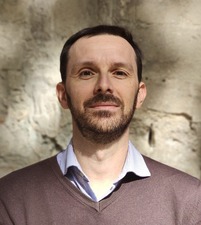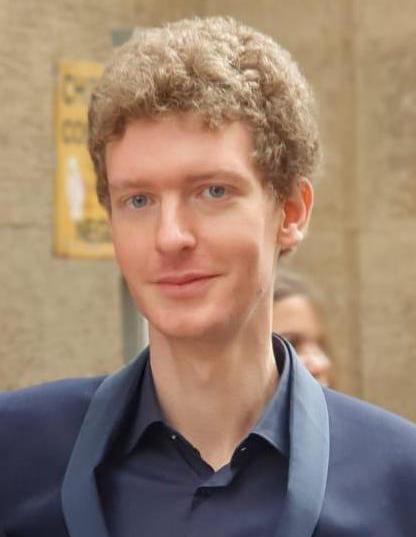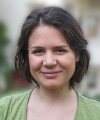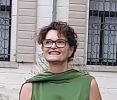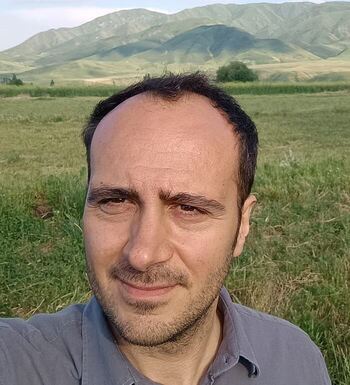Studying at the University of Verona
Here you can find information on the organisational aspects of the Programme, lecture timetables, learning activities and useful contact details for your time at the University, from enrolment to graduation.
Academic calendar
The academic calendar shows the deadlines and scheduled events that are relevant to students, teaching and technical-administrative staff of the University. Public holidays and University closures are also indicated. The academic year normally begins on 1 October each year and ends on 30 September of the following year.
Course calendar
The Academic Calendar sets out the degree programme lecture and exam timetables, as well as the relevant university closure dates..
| Period | From | To |
|---|---|---|
| Sem. 1A | Sep 24, 2018 | Nov 10, 2018 |
| Sem. 1B | Nov 19, 2018 | Jan 12, 2019 |
| Sem. 2A | Feb 18, 2019 | Mar 30, 2019 |
| Sem. 2B | Apr 8, 2019 | Jun 1, 2019 |
| Session | From | To |
|---|---|---|
| Sessione Invernale | Jan 14, 2019 | Feb 16, 2019 |
| Sessione Estiva (Gli esami sono sospesi durante la Sessione di laurea) | Jun 3, 2019 | Jul 27, 2019 |
| Sessione Autunnale | Aug 26, 2019 | Sep 21, 2019 |
| Session | From | To |
|---|---|---|
| Sessione Estiva | Jul 8, 2019 | Jul 13, 2019 |
| Sessione Autunnale | Nov 4, 2019 | Nov 9, 2019 |
| Sessione Invernale | Mar 30, 2020 | Apr 4, 2020 |
| Period | From | To |
|---|---|---|
| Festa di Ognissanti | Nov 1, 2018 | Nov 1, 2018 |
| Festa dell’Immacolata | Dec 8, 2018 | Dec 8, 2018 |
| Vacanze di Natale | Dec 22, 2018 | Jan 6, 2019 |
| Vacanze di Pasqua | Apr 19, 2019 | Apr 23, 2019 |
| Festa della liberazione | Apr 25, 2019 | Apr 25, 2019 |
| Festa del lavoro | May 1, 2019 | May 1, 2019 |
| Festa del Santo Patrono - S. Zeno | May 21, 2019 | May 21, 2019 |
| Festa della Repubblica | Jun 2, 2019 | Jun 2, 2019 |
| Vacanze Estive | Aug 12, 2019 | Aug 17, 2019 |
Exam calendar
Exam dates and rounds are managed by the relevant Humanistic Studies Teaching and Student Services Unit.
To view all the exam sessions available, please use the Exam dashboard on ESSE3.
If you forgot your login details or have problems logging in, please contact the relevant IT HelpDesk, or check the login details recovery web page.
Academic staff
 matteo.bonazzi@univr.it
matteo.bonazzi@univr.it
 evita.calabrese@univr.it
evita.calabrese@univr.it
 giacomo.girardi@univr.it
giacomo.girardi@univr.it
 gualtiero.lorini@univr.it
gualtiero.lorini@univr.it
 pieralberto.porcedducilione@univr.it; pierre_pordd@yahoo.it
pieralberto.porcedducilione@univr.it; pierre_pordd@yahoo.it
 045 8028732
045 8028732
 mariarenata.zanchin@univr.it
mariarenata.zanchin@univr.it
Study Plan
The Study Plan includes all modules, teaching and learning activities that each student will need to undertake during their time at the University.
Please select your Study Plan based on your enrollment year.
1° Year
| Modules | Credits | TAF | SSD |
|---|
Other activities2° Year activated in the A.Y. 2019/2020
| Modules | Credits | TAF | SSD |
|---|
1 module to be chosen among the following1 module to be chosen among the following3 modules to be chosen among the following3° Year activated in the A.Y. 2020/2021
| Modules | Credits | TAF | SSD |
|---|
3 modules to be chosen among the following1 module to be chosen among the following| Modules | Credits | TAF | SSD |
|---|
Other activities| Modules | Credits | TAF | SSD |
|---|
1 module to be chosen among the following1 module to be chosen among the following3 modules to be chosen among the following| Modules | Credits | TAF | SSD |
|---|
3 modules to be chosen among the following1 module to be chosen among the following| Modules | Credits | TAF | SSD |
|---|
2 modules to be chosen among the following3 modules to be chosen among the followingLegend | Type of training activity (TTA)
TAF (Type of Educational Activity) All courses and activities are classified into different types of educational activities, indicated by a letter.
Hystory of Christianity and of the Churches (2019/2020)
Teaching code
4S007536
Teacher
Coordinator
Credits
6
Also offered in courses:
- Hystory of Christianity and of the Churches of the course Bachelor’s degree in Cultural Heritage
- Hystory of Christianity and of the Churches of the course Bachelor’s degree in Humanities
Language
Italian
Scientific Disciplinary Sector (SSD)
M-STO/07 - HISTORY OF CHRISTIANITY AND OF CHURCHES
Period
Sem. 1A dal Sep 23, 2019 al Oct 31, 2019.
Learning outcomes
The course aims to provide the methodological and cultural foundations for a study of the history of Christianity within the wider context of the history of the Western world. It sets out to develop the skills needed to read and interpret sources and use the tools of historical-religious scholarship; critique sources in relation to the issues faced by historical-religious scholarship; navigate specialized bibliography, in addition to the manual.
Program
Outline:
The course will look at the wider historical context in which Christianity developed and spread in Antiquity, late Antiquity and the Middle Ages (I to XV centuries). Along with institutional aspects we will examine the development of religious life and the ideas that animated Christianity in all its components. Attention will also be devoted to moments of transition, crisis and change, with a particular focus on the early centuries of Christianity, on the reforms of the XI century, the religious movements of the XII and XIII centuries , the rise of the Mendicant Orders, the crises of the XIV century.
Required reading for students attending the course:
1) Storia del cristianesimo. 1. L’età antica, edited by Emanuela Prinzivalli, Carocci Editore, Roma 2015, only the sections listed below:
- Enrico Norelli, Gesù di Nazaret, pp. 33-68.
- Ewa Wipszycka, Il consolidamento degli episcopati nella grandi città cristiane, pp. 251-280.
- Fabrizio Vecoli, Il Monachesimo antico, pp. 281-307.
- Teresa Sardella, Il cristianesimo in Occidente dalla fine dell’impero ai regni romano-barbarici, pp. 329-358.
- Adele Monaci Castagno, Ideali di perfezione, modelli di vita e sviluppo del culto dei santi, pp. 411-433.
- Immacolata Aulisa, Le forme e i luoghi della pietà religiosa, pp. 435-460.
2) Storia del cristianesimo. 2. L’età medievale, a cura di Marina Benedetti, Carocci Editore, Roma 2015, the entire book, but especially the contributions by Rosa Maria Parrinello, Alfredo Lucioni, Luigi Canetti, François Bougard, Grado Giovanni Merlo, Maria Clara Rossi, Giuseppe Ligato, Nora Berend, Anna Benvenuti, Marina Benedetti.
Required reading for students not attending the course:
In addition to the essays contained in the two manuals mentioned above, it is recommended that students read one of the works listed below:
- G.G. Grado Merlo, Frate Francesco, Il Mulino, Bologna 2013.
- G.G. Merlo, Eretici ed eresie medievali, Bologna 2011.
- M. Pellegrini, Vescovo e città. Una relzione nel medioevo italiano (secoli II-XIV), Milano 2009.
- G.G. Merlo, Valdo. L’eretico di Lione, Claudiana, Torino 2010.
- A. Galdi, Benedetto, Il Mulino, Bologna 2016.
- A. Valerio, Maria di Nazaret. Storia, dogmi, tradizioni, Bologna 2017.
Teaching methods
For students attending the course the main teaching methods will be the traditional lecture, interspersed with seminar type discussions where students will have an opportunity to raise particular questions and issues.
Activities supporting the teaching: seminars, meetings and conferences on the topics of Christianity recommended or organized by the teacher.
| Author | Title | Publishing house | Year | ISBN | Notes |
|---|---|---|---|---|---|
| Amalia Galdi | Benedetto | Il Mulino | 2016 | ||
| Grado Giovanni Merlo | Frate Francesco | Il Mulino | 2013 | ||
| Adriana Valerio | Maria di Nazaret. Storia, dogmi, tradizioni. | Il Mulino | 2017 | ||
| Emanuela Prinzivalli | Storia del cristianesimo. 1. L'età antica | Carocci | 2015 | ||
| Marina Benedetti | Storia del cristianesimo. 2. L'età medievale | Carocci | 2015 | ||
| Grado Giovanni Merlo | Valdo. L'eretico di Lione | Claudiana | 2010 | ||
| Michele Pellegrini | Vescovo e città. Una relazione nel Medioevo italiano (secoli II-XIV) | 2009 |
Examination Methods
Examination methods: oral interviews
The oral exam will be an interview covering the topics that were dealt with during the lectures and expanded on in the study manuals. The interview will aim to determine:
the students’ knowledge of the topic,
their ability to use a specialised language,
their ability to make connections between various arguments and to argue points in an appropriate manner.
Topics required in order to pass the examination are the following: the historical figure of Jesus; development of the Jesus movement and the birth of Christianity; the birth and consolidation of the episcopates; monasticism (from its origins to the late Middle Ages); Christianity from the end of the empire to the Romano-barbarian kingdoms; the papacy and ecclesiastical institutions (XI –XIV centuries); the religion of lay men and lay women; the mendicant orders and religiones novae.
Type D and Type F activities
Modules not yet included
Career prospects
Module/Programme news
News for students
There you will find information, resources and services useful during your time at the University (Student’s exam record, your study plan on ESSE3, Distance Learning courses, university email account, office forms, administrative procedures, etc.). You can log into MyUnivr with your GIA login details: only in this way will you be able to receive notification of all the notices from your teachers and your secretariat via email and also via the Univr app.
Student mentoring
Linguistic training CLA
Gestione carriere
Practical information for students
Documents
| Title | Info File |
|---|---|
|
|
pdf, it, 325 KB, 16/07/24 |
|
|
pdf, it, 212 KB, 02/05/23 |
|
|
pdf, it, 131 KB, 02/05/23 |
Graduation
Documents
| Title | Info File |
|---|---|
|
|
pdf, it, 109 KB, 12/07/24 |
|
|
pdf, it, 112 KB, 14/05/24 |
List of thesis proposals
Stage e Tirocini
Student login and resources
Modalità e sedi di frequenza
La frequenza non è obbligatoria.
Maggiori dettagli in merito all'obbligo di frequenza vengono riportati nel Regolamento del corso di studio disponibile alla voce Regolamenti nel menu Il Corso. Anche se il regolamento non prevede un obbligo specifico, verifica le indicazioni previste dal singolo docente per ciascun insegnamento o per eventuali laboratori e/o tirocinio.
È consentita l'iscrizione a tempo parziale. Per saperne di più consulta la pagina Possibilità di iscrizione Part time.
Le sedi di svolgimento delle lezioni e degli esami sono le seguenti
- Polo Zanotto (vicino si trova il Palazzo di Lettere)
- Palazzo ex Economia
- Polo Santa Marta
- Istituto ex Orsoline
- Palazzo Zorzi (Lungadige Porta Vittoria, 17 - 37129 Verona)
- Chiostro Santa Maria delle Vittorie, Lungadige Porta Vittoria, 41

